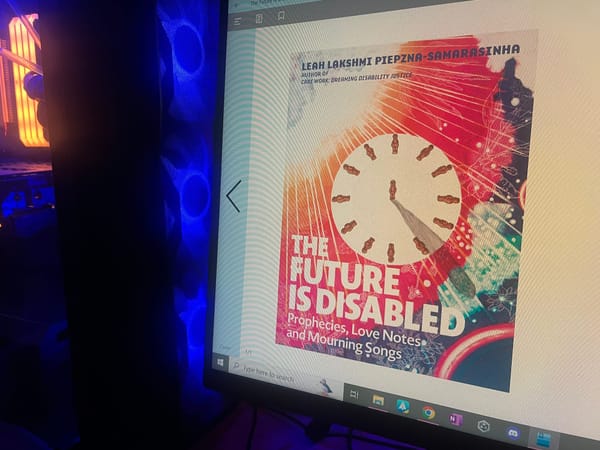(Untitled)
Asking Why in Consent
On the rare occassions society graces us with actually being taught about the concept of consent - whether in the context of sex or in the rest of life - it is taught as a very simple concept: I ask Sally if she wants to come with me to a friend's party. Sally says yes. Therefore, Sally has consented, and we are both excited for the party! Right?
Well, not necessarily.
In kink circles, we are often taught to go one layer deeper into consent than just considering whether or not Sally agreed. We additionally consider why I asked Sally to go to the party, and why Sally said yes.
The following explainer (and the Sally scenario) is taken directly from The Art of Consent website, edited slightly by me to add context. If you find this concept useful, I strongly suggest taking a look at their more detailed explainer of this concept - what they have dubbed The Wheel of Consent.
Let's consider the Sally scenario again, but this time ask ourselves the question "who is this invitation designed to benefit". Here are three scenarios:
- I really want to go to the party, but I know my ex will be there which I feel anxious about, and I’m hoping Sally is willing to come along with me for moral support (I ask Sally to come for my benefit).
- I'm not that bothered about the party, but I know that someone Sally is really keen to meet will be there, and so I suggest we go together (I'm offering to go for Sally's benefit).
- It’s a party that I think we’ll both enjoy, and it’ll be even more fun for both of us if we go together (I'm offerring for both of our benefits).
Now consider a fourth scenario:
- I'm not bothered about the party but I'm assuming Sally really wants to go and would like my company. Sally's not bothered about the party either, and is assuming I really want to go and want her company.
In this scenario I offer my invitation for Sally's benefit. Sally accepts it for my benefit. We both consent to going to the party, but neither of us actually wants to be there beyond supporting the other and we could have had a much better time hanging out on our own!!
Here is what the Art of Consent website says on the matter:
"The last example can happen all too easily in life… In the party example, Sally’s response to my question will almost certainly depend on her assumptions about which of the above scenarios she thinks is happening. In both everyday life and during sex, clarifying 'who is it for' helps avoid misunderstandings and brings more clarity, authenticity and enjoyment to all our interactions with others."
I cannot express how often I now notice this miscommunication happen in my daily life ever since I learned this concept.
I ask if I can help my friend with the dishwasher, they'd like the help but say no because they know I’m chronically ill and assume I was just offering as a curtesy - meanwhile I'm actually having an energetic day and was making a genuine offer.
(this one’s made up Dannie didn’t do this) My partner asks me if they can help me clean my room. I say no because I have no issues with my room’s level of tidiness, and so don’t desire the help. But I later discover that my partner wasn’t asking for my benefit, but instead for their own! They’d been tripping over things in my room and the clutter added to their experience of sensory overload.
I ask my sister if I should turn the air con on even though it's already cool in my room because I know it gets hotter in her room than mine - she says yes even though her room is a fine temperature because she assumes I want to turn it on for my own benefit. Now we're both shivering in our rooms on a 40C day!!
Learning the why behind someone’s question, or behind their “yes” or “no”, can be crucial to ensuring that everyone is on the same page.




